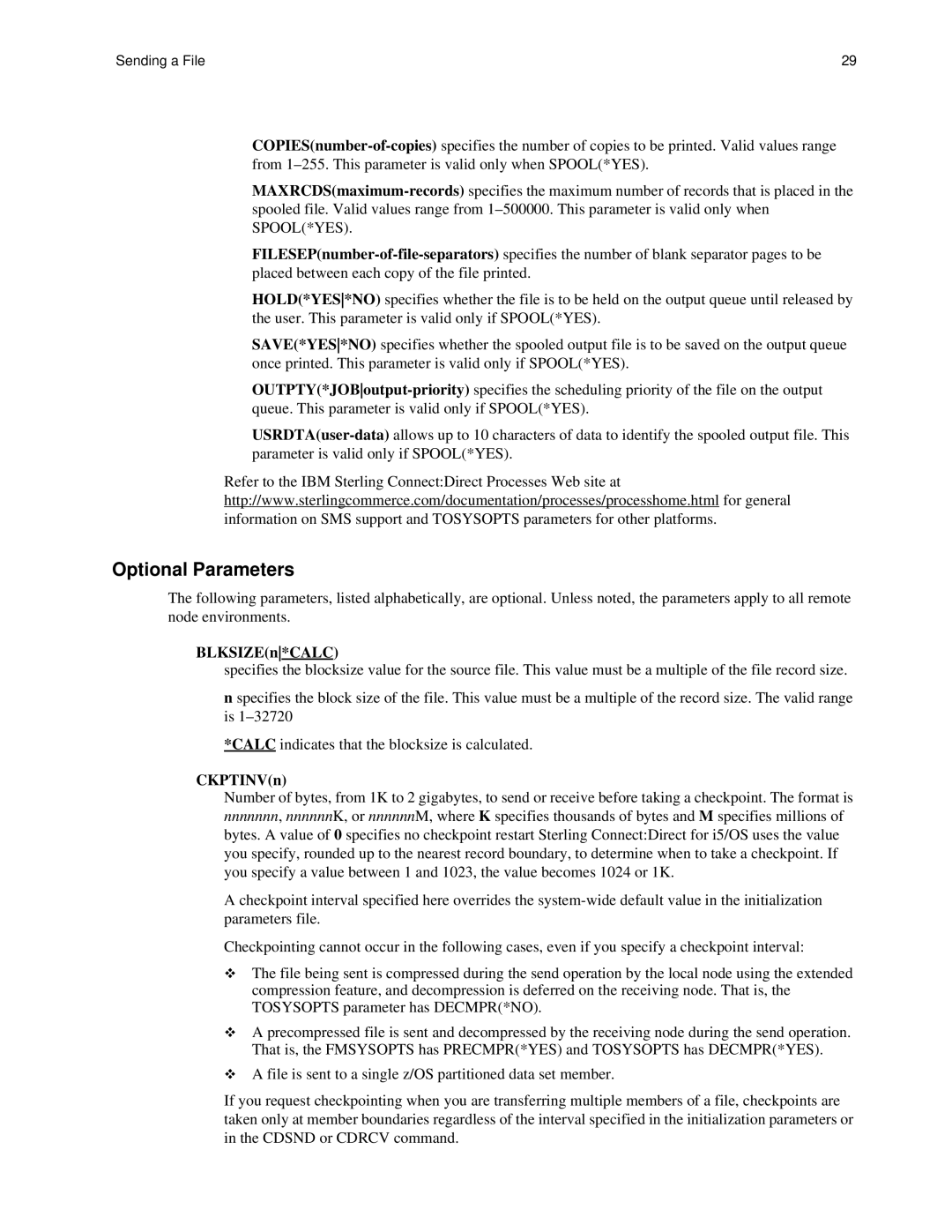Sending a File | 29 |
HOLD(*YES*NO) specifies whether the file is to be held on the output queue until released by the user. This parameter is valid only if SPOOL(*YES).
SAVE(*YES*NO) specifies whether the spooled output file is to be saved on the output queue once printed. This parameter is valid only if SPOOL(*YES).
Refer to the IBM Sterling Connect:Direct Processes Web site at http://www.sterlingcommerce.com/documentation/processes/processhome.html for general information on SMS support and TOSYSOPTS parameters for other platforms.
Optional Parameters
The following parameters, listed alphabetically, are optional. Unless noted, the parameters apply to all remote node environments.
BLKSIZE(n*CALC)
specifies the blocksize value for the source file. This value must be a multiple of the file record size.
n specifies the block size of the file. This value must be a multiple of the record size. The valid range is
*CALC indicates that the blocksize is calculated.
CKPTINV(n)
Number of bytes, from 1K to 2 gigabytes, to send or receive before taking a checkpoint. The format is nnnnnnn, nnnnnnK, or nnnnnnM, where K specifies thousands of bytes and M specifies millions of bytes. A value of 0 specifies no checkpoint restart Sterling Connect:Direct for i5/OS uses the value you specify, rounded up to the nearest record boundary, to determine when to take a checkpoint. If you specify a value between 1 and 1023, the value becomes 1024 or 1K.
A checkpoint interval specified here overrides the
Checkpointing cannot occur in the following cases, even if you specify a checkpoint interval:
The file being sent is compressed during the send operation by the local node using the extended compression feature, and decompression is deferred on the receiving node. That is, the TOSYSOPTS parameter has DECMPR(*NO).
A precompressed file is sent and decompressed by the receiving node during the send operation. That is, the FMSYSOPTS has PRECMPR(*YES) and TOSYSOPTS has DECMPR(*YES).
A file is sent to a single z/OS partitioned data set member.
If you request checkpointing when you are transferring multiple members of a file, checkpoints are taken only at member boundaries regardless of the interval specified in the initialization parameters or in the CDSND or CDRCV command.
